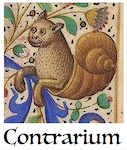In my constant quest for finding islands of peace and harmony in a corrupt and decaying world, the other Sunday I visited a Catholic Church in Helsinki, which organizes a monthly Latin Mass. (Finding Latin Masses all over the world is my latest hobby, as you may know.) I arrived late, however, missing the Tridentine mass, but I was kindly invited to join the church’s coffee break afterwards.
If Finns, comprising about 5.6 million people, are a small minority among Europeans, Catholics in Finland are an even smaller minority. Only 14 thousand souls. Less than 0.25% of the population. And almost half of them are recent migrants from Catholic lands, and not native Finns.
Most Finns are either Lutheran (66.6%) or have no religious affiliation (30%), and a few follow other religions, from Islam to Judaism to Buddhism. Arguably, there could be more practitioners of Buddhism or Wicca than Catholicism in Finland. Back in the woods up north, I was informed that a community of Theosophists following the teachings of Helena Blavatsky live around there, in a big house with their own sauna and even a theatre. I wasn’t aware Theosophy was still a thing. I don’t know how many of them exist in total in Finland, but they could be more numerous than the Catholics. Who knows.
It was an interesting group, nevertheless. (I mean, the Helsinki Catholics, not the Theosophists, which I haven’t met yet, but will.)
They told me that there is currently no Catholic Bishop in Finland. The last one, Teemu Sippu, the first native-born Bishop of Finland, retired due to poor health four years ago, and Rome hasn’t bothered to send a replacement yet.
They also do not get the tax benefits that the Lutheran Church, which is the national church, gets, so they are strapped for cash and dependent on donations.
On the other hand, they seem to be left mostly in peace. Since the community is so small, the government doesn’t really care about them, and they are not harassed by protesters as in other countries. For instance, in the U.S. and Canada, dozens of Catholic Churches were burned since 2021 by abortionist and leftist activists.
There was a nice Finnish couple whose teenage daughter sung at the choir and whose son celebrated First Communion that day; also a group of recent Finn converts to Catholicism. I wanted to interview some of them for my short documentary about Finnish identity, but Finns tend to be camera-shy, so no one accepted. Still, asked off camera what he thought about Finnish people, a Catholic Finn defined them half-jokingly as “alcoholic introverts”. Again half-jokingly, or perhaps not, he blamed the “Protestant work ethic” for that. He said he became more extrovert since he converted to Catholicism, as the Catholic church promotes the creation of communities and the idea that life must also be enjoyed, and it’s not all just suffering and hard work.
As for the alcoholism — well, like in other Nordic countries, alcoholic drinks are heavily taxed and regulated, and can only be bought in special shops. Fact is, winter is very cold, long and dark, and people tend to get depressed. Or, as a retired paper factory worker whom I met at the sauna said — Finns will get drunk and depressed in winter, then in Spring they start to smile again. (Perhaps a seasonal ban on alcohol could work?)
Historically, whenever such rigid rules against alcohol are relaxed in such countries, alcoholism and public drunkenness become a big problem. Russia, for instance, was historically more liberal with the sale of alcoholic beverages, but that’s why they had more of a problem with alcoholism (it has decreased in recent years, in part due to more restrictive measures such as not selling alcohol in shops after 8 PM).
For years, Finns used to go to Russia to buy their cheap booze, already during Soviet times, stupefying even the vodka-soaked Russians with their drunken antics. Now, with relations with Russia becoming more complicated due to the NATO-Ukraine war, I don’t know where Finns go to get stoned — maybe Estonia?
The painting below, by Aleksi Gallen-Kallela, caused commotion in 1894 for showing the highest members of Finnish intelligentsia seemingly drunk. From left to right: Gallen-Kallela himself, composer Oskar Merikanto, conductor Robert Kajanus, and composer Jean Sibelius. (There is a second version of this painting which is more refined, but I like this one better).

